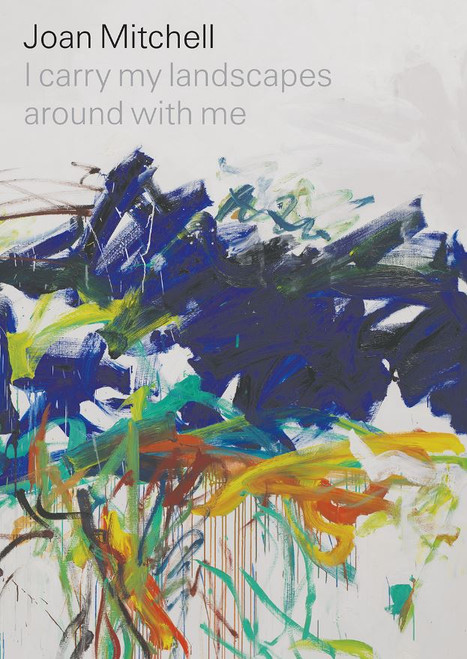I carry my landscapes around with me focuses on American abstract artist Joan Mitchellª¡s large-scale multipanel works from the 1960s through the 1990s.
Mitchellª¡s exploration of the possibilities afforded by combining two to five large canvases allowed her to simultaneously create continuity and rupture, while opening up a panoramic expanse referencing landscapes or the memory of landscapes.
Mitchell established a singular approach to abstraction over the course of her career. Her inventive reinterpretation of the traditional figure-ground relationship and synesthetic use of color set her apart from her peers, resulting in intuitively constructed and emotionally charged compositions that alternately evoke individuals, observations, places, and points in time. Art critic John Yau lauded her paintings as ªone of the towering achievements of the postwar period.ª
Published on the occasion of the eponymous exhibition at David Zwirner New York in 2019, this book offers a unique opportunity to explore the range of scale and formal experimentation of this innovative area of Mitchellª¡s extensive body of work. It not only features reproductions of each painting in this selection as a whole, but also numerous details that allow an intimate understanding of the surface texture and brushwork. In the complementing essays, Suzanne Hudson examines boundaries, borders, and edges in Mitchellª¡s multipanel paintings, beginning with her first work of this kind, The Bridge (1956), considering them as both physical and conceptual objects; Robert Slifkin discusses the dynamics of repetition and energy in the artistª¡s paintings, in relation to works by Monet and Willem de Kooning, among others.
Mitchellª¡s exploration of the possibilities afforded by combining two to five large canvases allowed her to simultaneously create continuity and rupture, while opening up a panoramic expanse referencing landscapes or the memory of landscapes.
Mitchell established a singular approach to abstraction over the course of her career. Her inventive reinterpretation of the traditional figure-ground relationship and synesthetic use of color set her apart from her peers, resulting in intuitively constructed and emotionally charged compositions that alternately evoke individuals, observations, places, and points in time. Art critic John Yau lauded her paintings as ªone of the towering achievements of the postwar period.ª
Published on the occasion of the eponymous exhibition at David Zwirner New York in 2019, this book offers a unique opportunity to explore the range of scale and formal experimentation of this innovative area of Mitchellª¡s extensive body of work. It not only features reproductions of each painting in this selection as a whole, but also numerous details that allow an intimate understanding of the surface texture and brushwork. In the complementing essays, Suzanne Hudson examines boundaries, borders, and edges in Mitchellª¡s multipanel paintings, beginning with her first work of this kind, The Bridge (1956), considering them as both physical and conceptual objects; Robert Slifkin discusses the dynamics of repetition and energy in the artistª¡s paintings, in relation to works by Monet and Willem de Kooning, among others.







